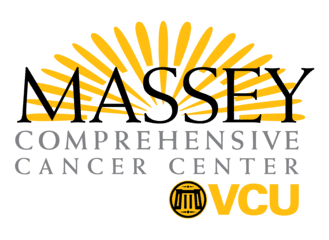
Research shows a relationship between excess body fat and increased cancer risk. Evidence seems to indicate that body fat increases risk for cancers of the esophagus, pancreas, colon and rectum, endometrium, kidney and breast (in postmenopausal women). Researchers continue to focus on the role diet plays in cancer — from prevention to treatment to staying healthy as a survivor. Cancer survivors are also showing particular interest in learning the facts about nutrition.
Making beneficial choices in one’s diet and activity level will help maintain good health and prevent recurrence.
Importance of an active lifestyle
Exercise reaps the most benefits of any other health habit that we can practice. Across many types of cancer, body weight is related to cancer risks, both for developing a primary cancer and for a recurrence. The good news is that physical activity is something over which most survivors have control.
We all have non-modifiable risk factors — things we cannot change like family history, age and gender. That makes it even more important to reduce the risks we can influence with everyday healthy behaviors, including exercise.
In a presentation, cancer risk-reduction expert Diane Wilson, Ed.D., M.S., R.D., associate professor at VCU Massey Comprehensive Cancer Center, discussed why people who exercise regularly are less likely to develop cancer and more likely to survive longer after a cancer diagnosis.
Summary of dietary guidelines
Diet plays a larger role in some cancers than others — for instance, breast, colorectal and prostate cancers are considered more diet-related while diet is thought to play a lesser role in brain cancer.
American Cancer Society’s dietary recommendations:
- Achieve or maintain a healthful weight and choose foods that help you do so.
- Adopt a physically active lifestyle and try to exercise at least 30 minutes, five times a week.
- Eat a variety of healthful foods with an emphasis on plant sources (ample servings of fruits and vegetables and whole grains).
- Limit consumption of red meats, especially those high in fat or highly processed.
- Limit alcohol intake.
Healthy weight is determined by looking at Body Mass Index. BMI is figured by multiplying your weight in pounds by 703, then dividing that by height in inches, and then dividing again by height in inches. A BMI over 25 is considered overweight and BMI over 30 is considered obese.
The average weight across the country has increased significantly since 1992, when less than 50 percent of the country was overweight. By 2004 almost every state lists more than 55 percent of its population as overweight. Obesity is considered a pandemic in the U.S. and in the world at large.
Being overweight is a risk factor for several cancers (endometrial, colon, esophageal, kidney, breast). If we look at breast and prostate cancer survivors, we find that 71 percent of these survivors are overweight. Weight gain is a common occurrence during and after treatment, and more and more studies are showing that weight gain is linked with significant comorbidity functional decline. Studies are starting to show that being overweight or obese is linked to recurrent and progressive cancer.
Data from the Nurses’ Health Study comprising of more than 5,000 breast cancer survivors showed that women who are able to maintain their weight after diagnosis had less risk for recurrence, breast cancer mortality and all-cause mortality than those who gained weight. Those who showed a gain in BMI of at least one-half of a unit had significant increases in recurrence, breast cancer mortality and all-cause mortality (.5 unit = approximately 3-10 pounds).
Ways to maintain a healthy weight:
- Keep portion size in mind.
- Choose lower calorie foods that are more satisfying (i.e. six potato chips have the same amount of calories as three cups of popcorn).
- Eat a lot of plant foods (fruits, vegetables and whole grains). Cancer survivors who eat a plant-based diet have lower death rates from other diseases and lower rates of comorbidity.
- Limit refined carbohydrates, including pastries, cookies, sweetened cereals, soft drinks and sugars.
Alcohol consumption is related to cancer of the kidney, head and neck cancers such as esophageal cancer, and breast cancer. Head and neck cancer survivors who continue to drink have more complications and higher rates of recurrence as well as higher rates of mortality. However, cancer survivors in general have a higher risk of heart disease and alcohol is helpful in that area, so survivors must weigh the risks and benefits for their situation. Moderate alcohol consumption consists of no more than two drinks per day for men and no more than one drink per day for women.
No supplements have proven to be directly beneficial for cancer-related outcomes. Generally, it is safer to rely on food as sources of nutrients.


